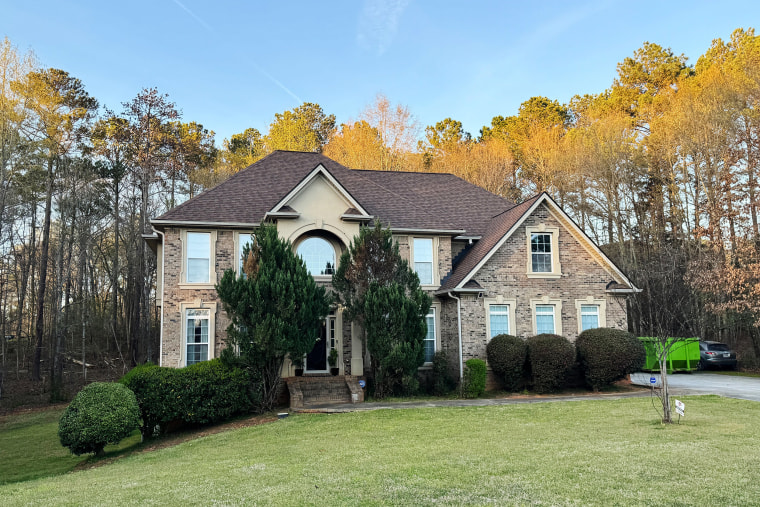Ts Madison, a reality TV personality and LGBTQ advocate, opened a re-entry house in Atlanta this week for formerly incarcerated Black transgender women.
“This is about providing not only shelter but access to opportunities they’ve been denied,” Madison told NBC News.
The TS Madison Starter House debuted Monday on Transgender Day of Visibility and will host a cohort of five residents participating in a 90-day program designed to support their reentry into society. Organizers said the program will offer stable housing, gender-affirming health care, job assistance, GED support, life-skills training, nutrition education and individualized therapy.

Madison, known for her reality series “The Ts Madison Experience” on We TV, has long advocated for trans rights. She has also openly discussed overcoming homelessness and survival sex work.
“I wanted to make space for these girls,” she said. “I wanted to teach them how to be successful without relying on their bodies but on their other gifts.”
Transgender people — especially Black trans women — experience homelessness at disproportionately high rates. A study published in 2020 by the Williams Institute at UCLA Law found 8% of trans adults reported recent homelessness, compared to 1% of cisgender straight adults. The 2015 U.S. Transgender Survey, conducted by the National Center for Transgender Equality (now Advocates for Trans Equality), found that 42% of Black trans adults have experienced homelessness in their lifetime.
Survival sex work is also common among trans people experiencing homelessness, with the National Alliance to End Homelessness reporting that 98% of unsheltered trans people have engaged in high-risk behaviors, including sex work, to survive.
Dominique Morgan, executive director of Black and Pink, a national nonprofit supporting LGBTQ people affected by incarceration, collaborated with Madison on the house’s creation. Morgan, who spent nearly a decade in prison, said she knows firsthand the barriers trans people face post-release, and she praised Morgan’s vision.
“This project isn’t just about housing — it’s about creating a space where Black trans women can thrive, not just survive,” she said.
The house, Morgan added, offers more than just a short-term stay.
“After 90 days, when they graduate, they’re not being thrown out into the world alone,” she said. “They have a network, a community and a group of people who are there to support them.”
Madison also partnered with NAESM, Inc., a nonprofit providing health care and HIV/AIDS services to Atlanta’s LGBTQ communities. Actress and activist Monroe Alise, who works closely with NAESM, applauded the partnership.
“Through this, we’re ensuring Black trans women have the tools to move beyond survival and into stability,” Alise said.
Morgan said the intake process and the programming are "extremely robust."
“We don’t believe in a one-size-fits-all model. Some residents might need job prep. Others may need mental health support or to learn how to cook healthy meals," she said.
The Ts Madison Starter House is not reliant on government funding, according to Madison, and she said this is especially important given the current rollback of transgender rights.
“This is funded by the people, for the people,” she said. “Even with the government cutting funding, we don’t need them. We have each other. It’s kind of like an underground railroad."
Madison said she’s documenting the journey of Starter House and its residents and hopes the program becomes a model for other similar efforts. She said the forthcoming docuseries is already in production and vowed it will showcase transformation, not trauma.
“We’re not doing it like a ‘Baddies,’” Madison said, referring to a reality show known for its drama-filled portrayals of women. “No, these are the girls overcoming. These are the triumphs.”
She added, "This is about possibility and transformation, not exploitation.”
As for Morgan, when asked about the docuseries component of the Starter House project, she said visibility is key: “Historically, queer people who are most accepted are the ones the public sees. That’s why this matters.”

